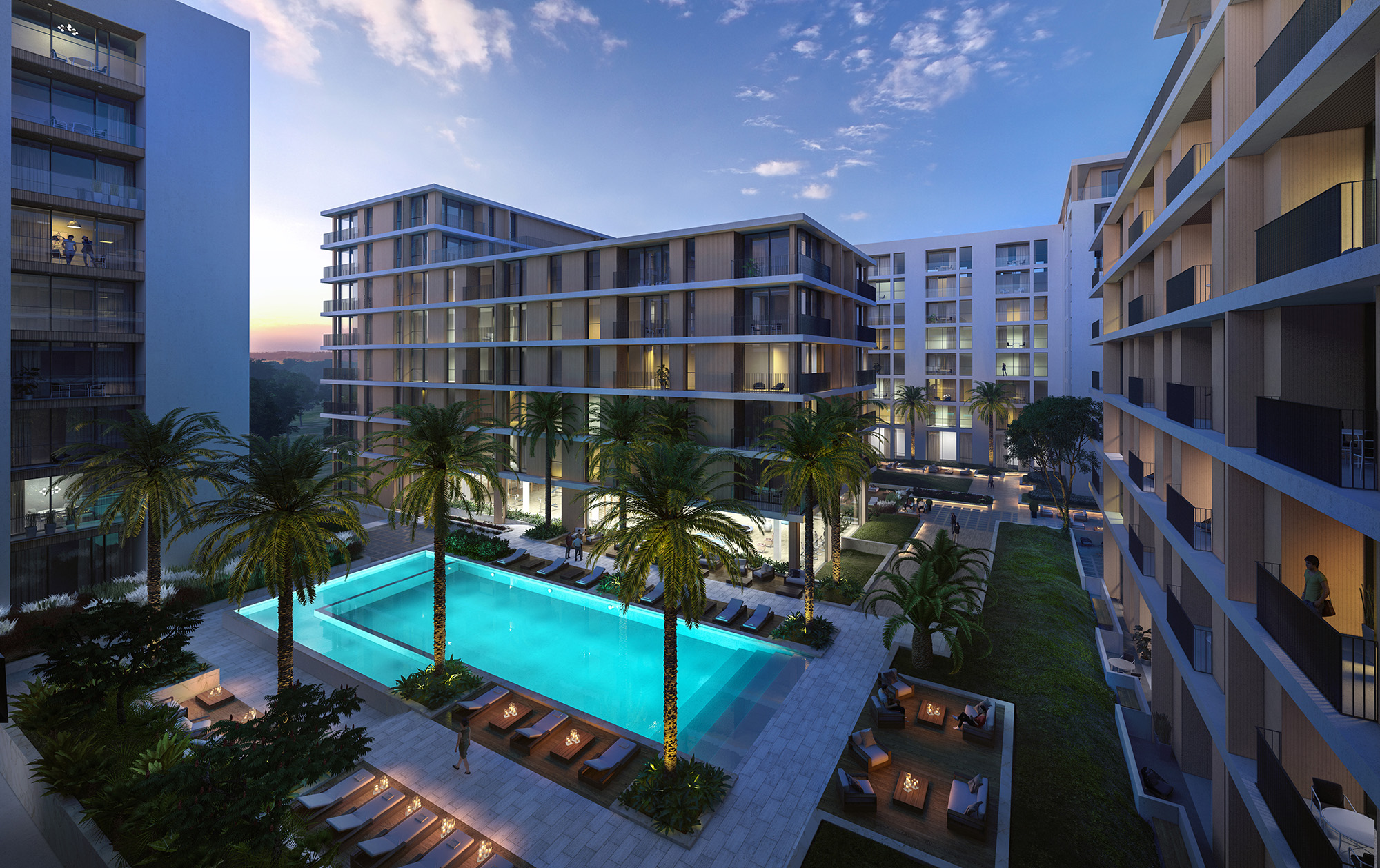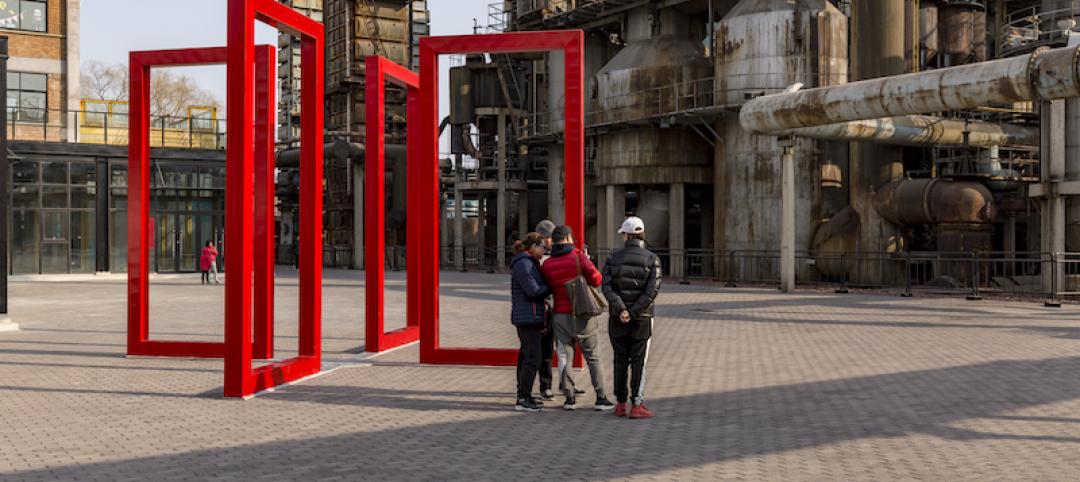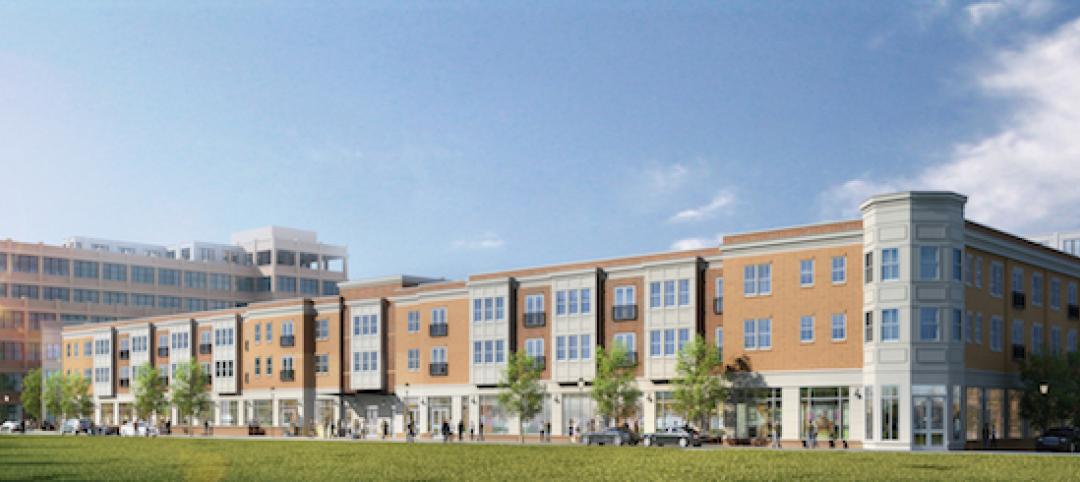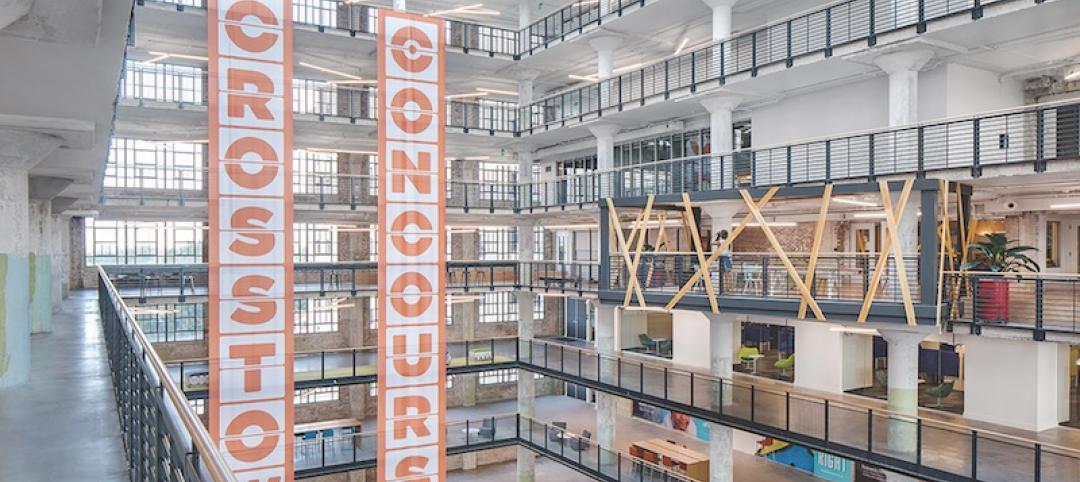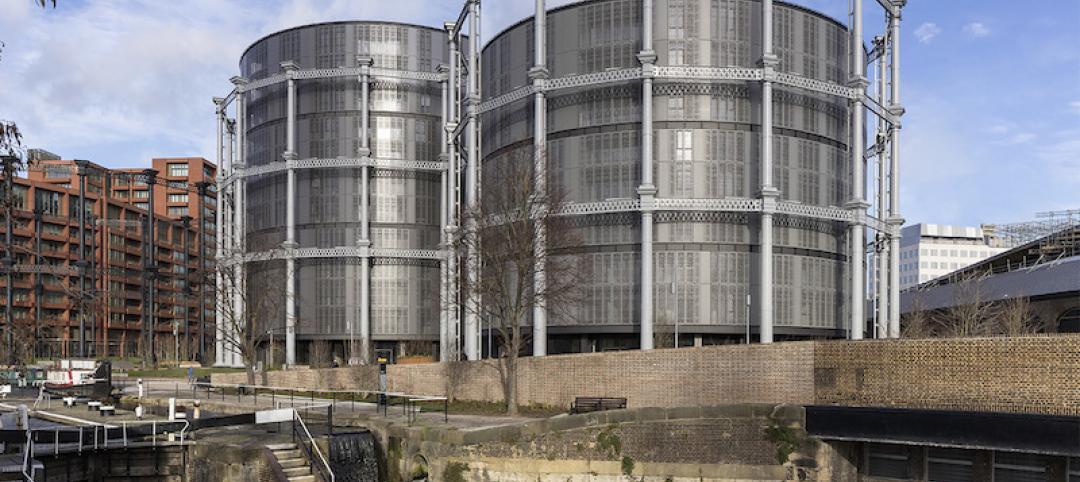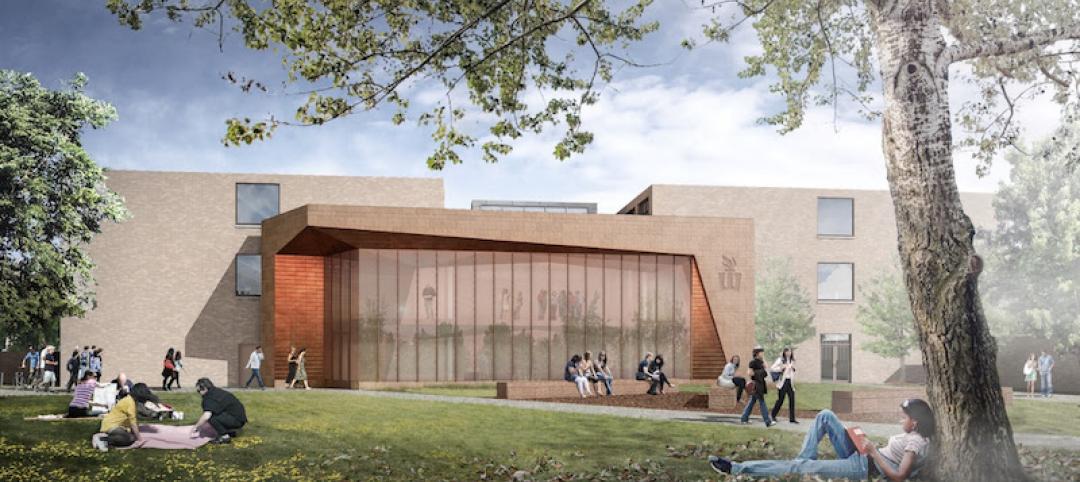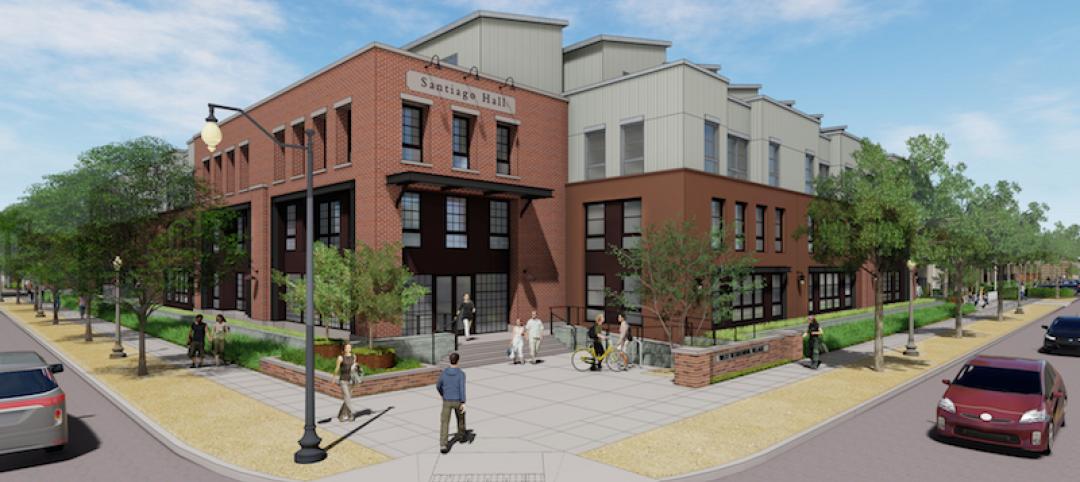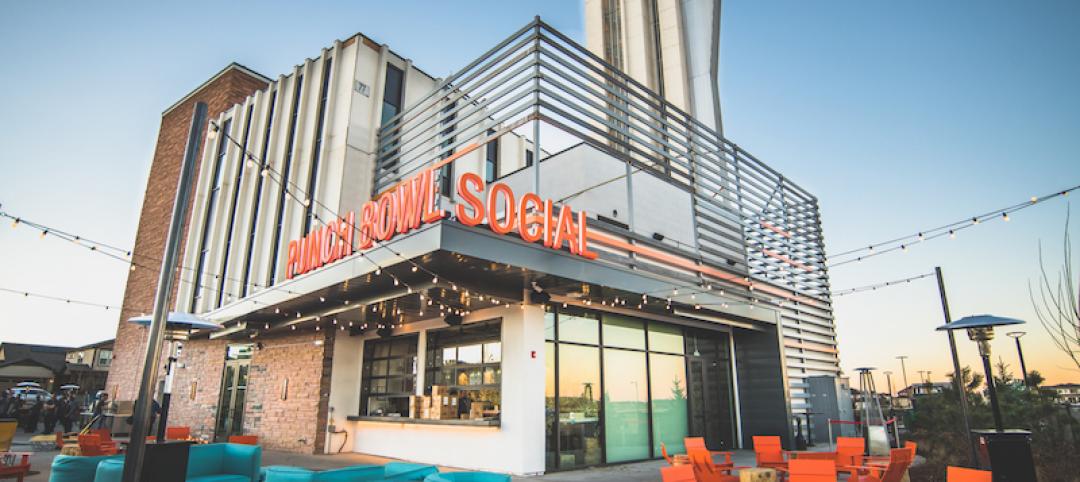For the first time ever, hotel to apartment conversion projects have overtaken office-to-residential conversions. In 2023, hotels accounted for over one-third of all adaptive reuse projects in the U.S. with over 4,500 units delivered.
In its analysis of Yardi Matrix data, RentCafe finds that of the buildings converted in 2023, hotels comprised 36% of the total—the largest share among the group. Office buildings made up 28% of adaptive reuse projects, followed by factories (15%), warehouses (9%), and others (12%).
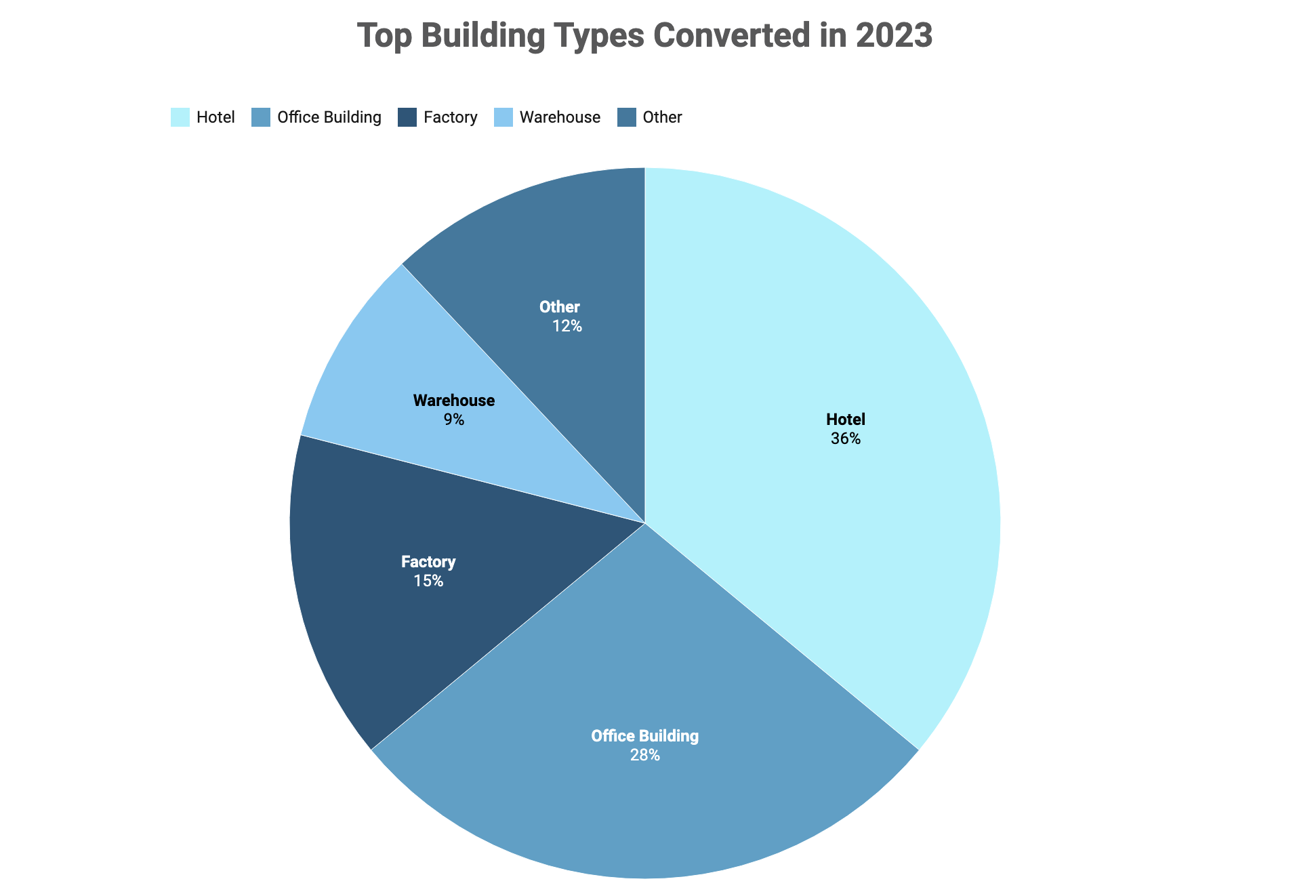
The adaptive reuse scene is poised for even further growth as 151,000 apartments are currently in various stages of conversion, according to the RentCafe analysis.
"The adaptive reuse market does show a bifurcation between high-end and low-end markets,” says Doug Ressler, Senior Analyst & Manager of Business Intelligence, Yardi Matrix. “This is particularly evident in the commercial real estate sector, where a sizable portion of office vacancies are found in older buildings with reduced functionality and lack of modern amenities.”
Overall, over 12,700 new apartments were converted in 2023—a substantial 17.6% increase from the previous year. Hotels made up 4,556 of those units.
Are Hotels More Equipped for Residential Adaptive Reuse Conversion?
Most of the hotel to apartment conversions come from Class B hotels. Though not without its challenges, hotel-to-residential projects can be completed faster and at a lower cost than office building conversions. This is due in part to already existing floor plans, water systems, and waste lines that are relatively easier to modify.
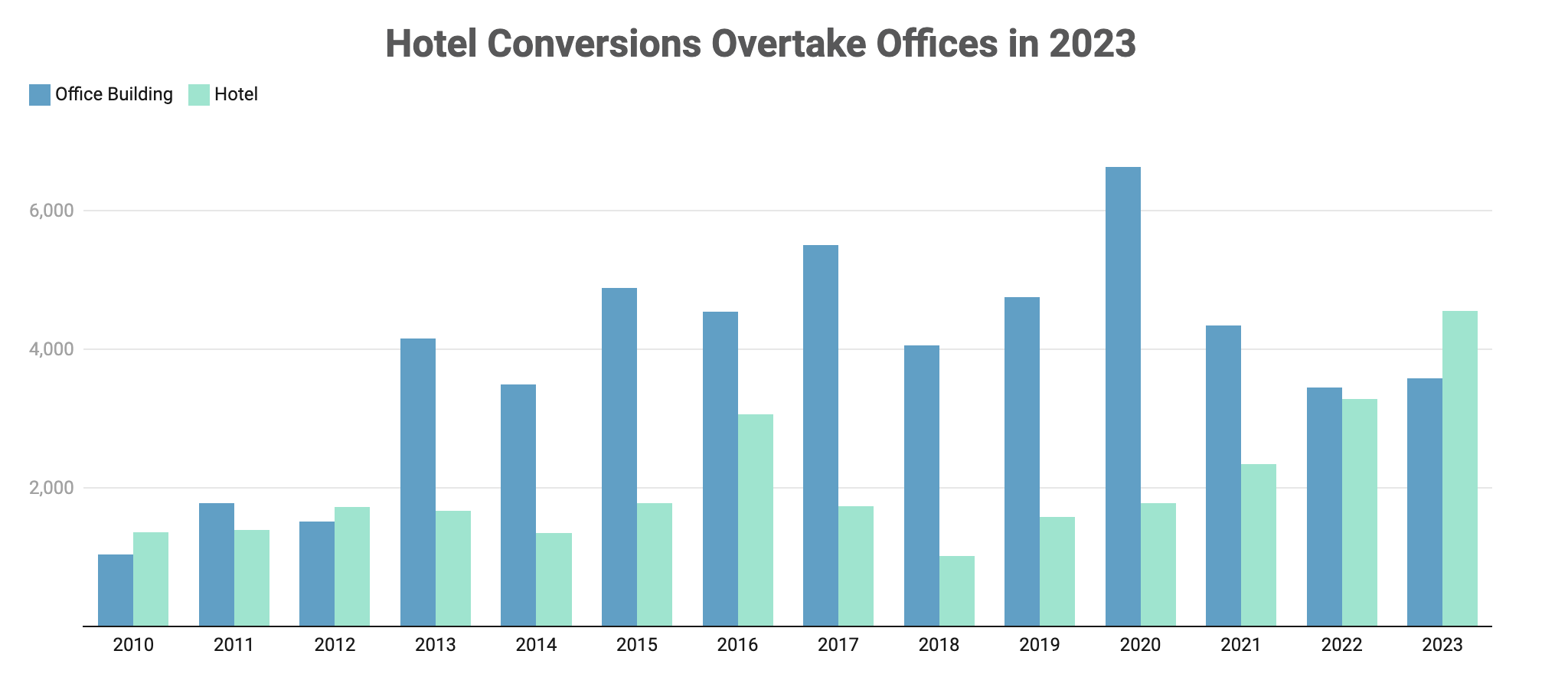
Thought while some underutilized hotels are located in city centers, other potential conversion candidates are in “less desirable locations next to airports or off major highways far from residential communities—factors that can suppress the value and appeal of residential conversions,” said Chris Walker, Planning and Community Development Project Manager, Aufgang Architects.
These issues can be of less concern in converting hotels to affordable or supportive housing rather than market rate, according to Aufgang.
RELATED: Hotel vs. office: Different challenges in commercial to residential conversions
Top Metros for Hotel To Apartment Conversion
Manhattan, N.Y., has become a hotspot for hotel conversion projects. All of its 733 converted units in 2023 came from repurposing hotels. Manhattan now holds nearly 6% of all converted apartments in the U.S., according to RentCafe.
Top 10 Metros with Most Converted Apartments from Hotels in 2023
- Manhattan, N.Y., converted 733 apartments in 2023.
- Albuquerque, N.M., converted 300 apartments.
- Richmond Va., converted 291 apartments.
- Hialeah, Fla., converted 251 apartments.
- Overland Park, Kan., converted 220 apartments.
- Sterling Heights, Mich., converted 213 apartments.
- Richland, Wash., converted 207 apartments.
- Las Vegas, Nev., converted 199 apartments.
- Salt Lake City, Utah, converted 184 apartments.
- Ruskin, Fla., converted 158 apartments.
Related Stories
Adaptive Reuse | May 7, 2018
A decade after it debuted, Beijing’s 798 Arts District is still a work in progress
China’s third-most-popular tourist attraction remains a magnet for creative tenants.
Adaptive Reuse | Apr 26, 2018
Edison Lofts building is New Jersey’s largest non-waterfront adaptive reuse project
Minno & Wasko Architects & Planners designed the building.
Adaptive Reuse | Mar 8, 2018
LEED Platinum for Memphis industrial reuse project
Memphis-based engineering firm OGCB and contractor Grinder Tabor Grinder led the removal of 54 million lb of concrete and 10 million lb of metal.
Multifamily Housing | Feb 27, 2018
Victorian era gasholders become modern residences in London
The new residences are part of the King’s Cross redevelopment scheme.
Education Facilities | Jan 8, 2018
Three former school buildings are repurposed to create mini-campus for teacher education
The $25.3 million project is currently under construction on the Winona State University campus.
Adaptive Reuse | Jan 4, 2018
Student housing development on Chapman University campus includes adaptive reuse of 1918 packing house
The Packing House was originally built for the Santiago Orange Growers Association.
Adaptive Reuse | Dec 11, 2017
Detroit's economic improvement a boon to its hotel sector
Detroit Foundation, a stylish boutique hotel, is the Motor City’s newest hospitality venue.
Adaptive Reuse | Nov 29, 2017
‘Eat-ertainment’ establishment grants abandoned air traffic control building a second life
The concept’s design reflects the golden age of flight.
Adaptive Reuse | Nov 10, 2017
Austin’s first indoor shopping mall becomes Austin Community College’s new digital media center
Renovation of the defunct mall represents Phase 2 of ACC’s $100 million adaptive reuse project.
Adaptive Reuse | Oct 23, 2017
A tableware storage space is reset to accommodate an investment firm’s headquarters in Raleigh, N.C.
This adaptive reuse establishes more direct visual and physical connections to a growing city.



